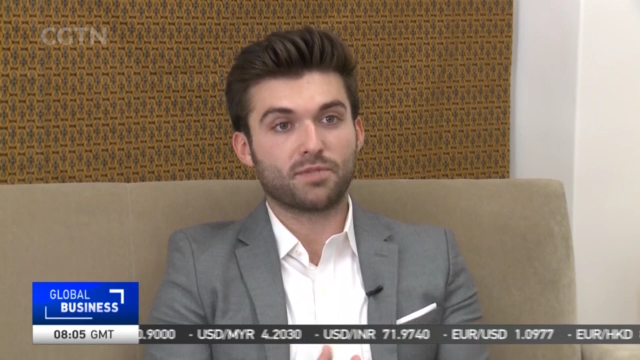
16:57, 02-Sep-2019
China-US Trade War: Tariffs pose major risk for Silicon Valley
Updated
17:07, 02-Sep-2019

Meanwhile. The 15-percent tariffs on Chinese products imported to the US are expected to hit the tech sector hard. That has many industry leaders and start-ups scrambling to figure out how to best survive the economic turbulence. Our correspondent Mark Niu has more from Silicon Valley.
Smart tech manufactured in China - everything from flat-screen TV's to smart watches to smart speakers -- all face a 15% tariff. A young tech-conscious generation has already seen prices on trendy products like scooters and vaping devices rise due to previous tariffs. Tiffany Zhong -- who runs a company that gathers market intelligence on teens -- says tariffs are affecting their purchases.
TIFFANY ZHONG, CEOZEBRA INTELLIGENCE "We grew up on these smarter products making our lives so much easier and so much faster. These tariffs will impact, kind of, which products we will continue buying if prices go up, which is a huge concern for companies and consumers."
MARK NIU MOUNTAIN VIEW, CALIF."But here in Silicon Valley, so many companies rely on manufacturing in China to bring down production costs in order to take on the competition. And that can be especially important for startups."
Silicon Valley-based Amino Capital has invested in more than 100 startups. That includes being the first investor in Candy House, which created Sesame, a device that can turn on almost any type of lock, into a "smart" lock. Tariffs have made decisions on whether to move more manufacturing to China far more difficult.
LARRY LI, FOUNDING PARTNER AMINO CAPITAL "For them to be more competitive, it's very important for them to lower the cost. And if the companies can manage the costs really well, they can grow really well."
JOHN MEYER, MANAGING PARTNER STARSHIP CAPITAL "From a startup standpoint, this has made it very nerve-racking because startups are traditionally very thin in terms of their spending power and so any increase, whether it's a few percentage points and their yearly expenditure is going to make a big difference."
Meyer points out another important component on the tariff list - lithium-ion batteries.
JOHN MEYER, MANAGING PARTNER STARSHIP CAPITAL "This one is tremendously worrisome for a lot of the newer entrants to the autonomous vehicle space because most of them who are actually relying on not just electric powered motors with batteries, but batteries that come from China. And so there's very little infrastructure in battery manufacturing for these new self-driving cars startups outside of in China."
PETER LEROE-MUNOZ, VP SILICON VALLEY LEADERSHIP GROUP "The other real possibility is that consumers face reduced innovation from those companies. Everybody looks forward to the next big smartphone or the next big reveal of an operating system or something like that. With less innovation, with disrupted supply chains and fewer resources, we're gonna see less innovation and consumers as whole suffer as a result."
The Silicon Valley Leadership group will continue lobbying the Trump administration hard as the next round of tariffs slated for December 15th could be more drastic - with laptops and smartphones currently on that list. Mark Niu, CGTN.
SITEMAP
Copyright © 2018 CGTN. Beijing ICP prepared NO.16065310-3
Copyright © 2018 CGTN. Beijing ICP prepared NO.16065310-3